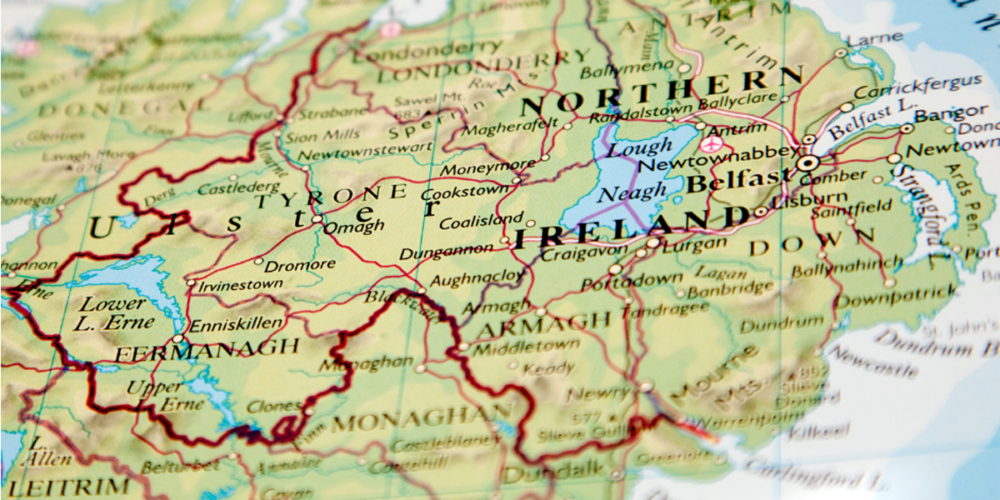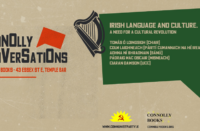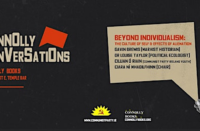If the political entity known as Northern Ireland were a hospital patient, above its bed would hang a notice reading “do not resuscitate”. So dire is that area’s performance across a range of issues, from the political to the economic, that only those blinded by outdated prejudice can argue for its continuation. Should anyone question this assessment, stop for a moment and consider some pertinent facts that have made the Six Counties the incurable basket-case it has become.
Take the health situation for a start. Recent figures produced by the British Medical Association1 record that 26% of the North’s population is waiting for a first consultation. Approximately 545,000 people are waiting for elective care, making this the highest recorded number since the database began in June 2008. Bear in mind the population of the 6-Counties is still less than 2 million.
Consider then the housing question. In light of the fact that this issue was a major factor in sparking the civil rights movement and the subsequent years of conflict, one might be forgiven for thinking this matter would have been resolved many decades ago. Well, one would be mistaken. According to a recent BBC report there is approximately 47,000 households on the social housing waiting list, with 75% of those experiencing stress. Moreover, the official homeless statistics for the North calculated in June stood at 55,000 people, including 4,500 children.
Reflecting on those dismal statistics may cause residents of the region to pour themselves a cool glass of water. Should they do so, let them be careful not to draw refreshments from the largest fresh-water lake in Ireland. We are referring here to Lough Neagh, source of drinking water for 40% of the North’s population, and currently polluted by widespread – and health endangering – green algae.
Lough Neagh’s contamination is caused in large part by discharges from the agricultural sector, yet even such a basic issue as fresh water appears beyond the ability of the local devolved administration to remedy. A failing entirely in keeping with a body that took seven months to produce a programme for government, resulting in a document accurately described by Brian O’Neill, writing for the Slugger O’Toole website, as “88 pages of vacuous waffle”2.
Nor was O’Neill alone in expressing disappointment. Many commentators highlighted the Executive’s failure to specify a timeframe for any of its aspirations or an ability to provide a suitable allocation of funding to see its programme implemented.
It is undeniable that many of the above mentioned problems are not unique to the North. Housing and health deficiencies are also major problems in the Republic. Nevertheless, there exists a huge and significant difference in that south of the border: citizens have the ability to change government policy. Arguably, the Republic’s electorate has been too tolerant of defective administrations, yet initiatives such as the anti-water tax protests demonstrate that its people have the power to exercise influence on those in office.
Residents of the Six Counties enjoy no similar ability to impact upon the centre of power that indisputably resides with Westminster. Because, notwithstanding the technical designation of Northern Ireland as being an integral part of the United Kingdom, the North has always been viewed and treated by governments in London as a place apart.
Rather than being “as British as Finchley”, the area is treated in practice as a colony. For the first 50 years of the northern state’s history it, alone within the UK, had its own parliament to which Westminster granted a measure of autonomy. However, when this arrangement was threatened by instability in the late 1960s/early 1970s, the British response was informative.
Treating the situation as a colonial uprising rather than a grievous democratic aberration, London dispatched troops. Those soldiers were fresh from Britain’s imperial conflict zones and invariably led by so-called “counter-insurgency experts” such as the infamous Frank Kitson. Supporting the military in the 1970s were a number of appointees to head up the RUC, men with service in colonial conflict zones3.
Although the sharp militaristic edge is no longer visible, in practice the designation has remained. The Six Counties is governed from London as if it were a colony. The local devolved administration has little power or influence. With no fiscal authority, it depends for funding on a block grant decided on exclusively by Whitehall. A British cabinet minister, referred to as a “Secretary of State”, is assigned to act as viceroy.
It is this office that exercises real power in the North, as evidenced most lately by the current incumbent’s decree to axe funding for Casement Park and pause financing for two city deals for the Mid South-West and the Causeway Coast and Glens councils. More notable still was Viceroy Benn’s decision to overlook a stark high court criticism of the controversial Independent Commission for Reconciliation and Information Recovery (ICRIR) and deny a public enquiry into Troubles-related deaths. Moreover, at last month’s Labour Party conference, the British Prime Minister never once uttered the words Northern Ireland during his key-note address.
In light of all this, it is surely well beyond time to draw down the curtain on Britain’s first colony by calling an end to the zombie political entity that is Northern Ireland.
- “NHS under pressure”, Northern Ireland BMA website, accessed at: https://tinyurl.com/mtdez5yp
- O’Neill, B (2024) “Stormont. Frig away off with your ‘consultations’ and do something!”, Slugger O’Toole website, accessed at: https://tinyurl.com/sb72evuz
- “Legacy of Colonialism”, Pat Finucane Centre website, accessed at: https://tinyurl.com/ycyucvkv






